Judicial
Texas Heartbeat Act – step up, activists!
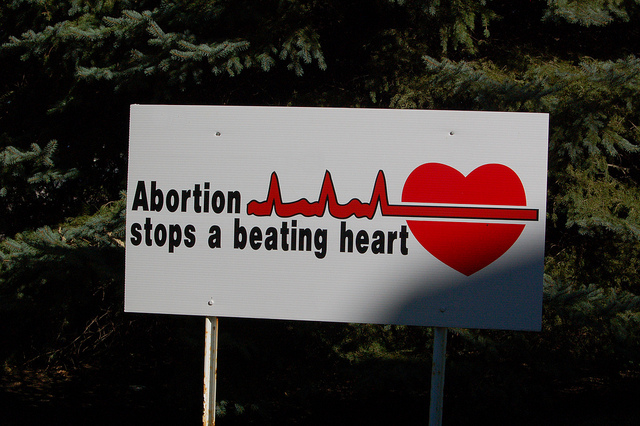
The howling, baying at the moon, and banshee screeches about the Texas Heartbeat Act, continue. As CNAV reported last week, too many commentators “get it wrong.” Whether from faulty reading comprehension or just plain laziness, they comment on this law without reading it. Or if they do read it, they clearly don’t understand it. But thus far, only one pro-life group has even put forward a program to enforce the law as it requires. CNAV cannot judge the full program, because CNAV does not have access to it. But CNAV does have comprehensive suggestions to make to take advantage to this seemingly novel approach to law enforcement.
Latest commentary on the Texas Heartbeat Act
First, let us review the law once again. Television station KVUE-TV (Austin, Texas) has two stories and six videos. (Note: click on any of the first three videos below to stop and restart it.)
Among other stakeholders, two Texas firms calling themselves Bumble and Match have already announced plans to fund abortions in Texas. When they do that they risk running directly afoul of the new law. (See below.)
Separately, Erick-Woods Erickson points out that establishment Republicans who now are fretting about the Texas Heartbeat Act being an electoral disaster for Republicans, are:
- At best, exaggerating and worrying over nothing, and
- At worst, lying.
“You can’t trust the narrative,” he says. So did Dr. Steven Turley. Governor Greg Abbott (R-Texas) seems to know this.
We also have this from Texas Values.
Actual workings of the Texas Heartbeat Act
And now to the Texas Heartbeat Act itself and how it would work. Here is the text.
What the Texas Heartbeat Act does not do
The Texas Heartbeat Act does not directly punish, or hold liable, any woman merely for seeking an abortion. While it might make an abortion less readily available, it does not create a cause of action against the woman.
Nor does this Act hold anyone liable merely for advocating for abortion generally, or any “right” to it. Misguided legal or Constitutional advocacy is never legally actionable or prosecutable. Not in these United States, it’s not. And that still holds. The Act creates a cause of action for anyone who aids or abets abortion in specific instances. But merely saying, “The law should allow this on demand and without apology” remains legal.
Finally: nowhere does this Act create a license for vigilantism. Vigilantism means taking summary action against a lawbreaker. This Act grants standing to ordinary citizens to lay an abortion case before a court of law. It does not let said citizen:
- Trespass on, vandalize, or otherwise damage the property of others, nor
- Injure or threaten injury to others.
What the Act does
The law makes a very simple prohibition. Under it, no person may perform, induce, aid, or abet an abortion:
- Without someone, before the abortion takes place, at least making an effort to find a heartbeat, or
- After the search for a heartbeat has found one.
Usually that occurs within six weeks of the pregnant woman’s last menstrual period.
This law applies even in cases of rape or incest. The Texas Legislature decided that the new life should not suffer summary execution to atone for someone else’s wrong act. But it does not apply in genuine medical emergencies to the woman.
To repeat: the penalties, such as they are, do not apply to any woman seeking an abortion. Instead they apply to the abortion provider and anyone who paid for, or otherwise aided and abetted, the abortion. Aiding and abetting includes anything from encouragement (or coercion) of abortion to offering payment, transportation, or anything else of the kind.
No State enforcement! Private enforcement only
But: the law does not create a new felony or misdemeanor. Instead the law grants standing to private citizens, who do not hold government jobs, to sue such people. If a citizen plaintiff prevails, a judge may award:
- An injunction against the act if it hasn’t taken place, and
- Attorney fees, court costs, and judgments of $10,000 or more in each instance.
Whether “attorney fees” include fees an attorney might pay directly to a private investigator, the law does not make clear.
So the Texas Heartbeat Act targets, not the woman, but those who profit from “the abortion industry.” Every step of the process (except maybe for giving the woman a ride to the clinic) involves some gain. The abortionist and the insurer, gain money. The “man in the case” gains relief from the responsibility for caring for a new life. Pro-abortion activists realize a sick primary gain of the last legal category of murder. They might also get a secondary gain of approval from equally sick political commentators and “influencers.”
Low profit margins – and disgusting environments
Profit margins in the abortion industry appear to be slim. Fifteen years ago, Operation Rescue bought the building that housed Central Women’s Services in Wichita, Kansas. They then, as the new owners, evicted the clinic – simply refused to renew the lease. When they entered the building to clean it, they found an environment that was more disgusting than they had ever claimed. Blood liberally stained the carpet and soaked the furniture. Dirt and “contact paper” covered the walls. “Products of conception” stopped up the drain and garbage disposer. An appalling stench pervaded the air, a stench the clinic operators vainly tried to quell with chlorine bleach. CNAV trusts that it need not go on and apologizes for inducing vomiting in its readers.
And as if that spectacle wouldn’t disgust people enough, consider the apprehension, warranted search-of-premises, and trial of Kermit Gosnell, M.D. in Philadelphia. Bad enough that he displayed such a cold attitude. The way he ran his clinic – and did not clean it – was worse.
All of which to say: most abortionists cannot risk a court awarding a $10,000 money judgment against them. For that reason, most providers in Texas ceased their practices when the Supreme Court, shortly before midnight 1 September 2021, denied the application for an emergency injunction against the Texas Heartbeat Act.
The Texas Heartbeat Act makes pro-life activists step up to the plate and work for the moral justice they say they desire
But the Texas Heartbeat Act does not guarantee prevailing in court. No law does. Pro-life activists must realize that prosecuting a case at law requires more than picking up a telephone or clicking a hot link to lay information with someone. (And this time they may not lay information with the police!) The Texas Heartbeat Act effectively gives this message to pro-life activists: all right. You wanted your heartbeat law. Now you have it. But now you, activists, must carry it out. You find the witnesses, you file the action, you issue the subpoenas, you take depositions and issue interrogatories, you build the case. Don’t expect the taxpayers to cover the tab for this. That’s on you. If you prevail, you can look forward to rewards that might make it worth your while. But if you lose, you’re on your own.
Is this spectacle of essential private prosecutions novel? Actually, no. CNAV mentioned in its last report the Fast of Esther and the Festival of Purim. More recently, CNAV cites the operation of Roman courts, none of which had public prosecutors bringing actions before them. In People of Sicily Province v. Gaius Verres (70 BC), a Sicilian citizens’ group had to hire an advocate to prosecute their governor for flagrant abuses and wholesale thefts. They famously hired Rome’s grandest legal eagle of the day, Marcus Tullius Cicero. (The case ended when Verres went into voluntary exile.)
First case likely to go before SCOTUS
So today’s pro-life activists need to hire their Cicerones to argue for them. And they will likely need to argue their first case or cases in the federal courts. The clearest pathway would run something like this:
- They sue an abortion provider in Texas for performing or setting up an abortion in Texas.
- The defendant, perhaps getting legal aid from NARAL Pro-choice America or some such, pursues appeals in Texas courts.
- The Texas Supreme Court denies the last appeal in Texas.
- Then the defendant petitions for a writ of certiorari to the United States Supreme Court.
Then and only then can a federal court do anything. The Supreme Court as good as said, “Call us when you have an actual controversy under this law.”
But if the activists can prevail in the Supreme Court, then they can pursue other cases at far less overall expense.
Private investigators
Yet they need more than lawyers. They will need investigators. The usual protections of the security of medical records still apply. The federal Health Information Portability and Accountability Act (HIPAA) requires this. To get past this obstacle, one needs witnesses, enough to:
- Sue,
- Issue subpoenas for the records, and
- Respond to the inevitable motion to quash the subpoenas.
Gathering those witnesses, and poring over those documents once one gets them, will take time and effort and cost money. This is what private investigators do. Many lawyers, especially criminal lawyers, have private investigators on retainer. But this is not a criminal matter. And the Texas Heartbeat Act might not guarantee that a plaintiff, prevailing in a lawsuit under the Act, can have a court award him the fee that a private investigator would demand. Could the lawyer charge that expense as his own fee? An activist judge might disallow that and let the lawyer bill only for his own hours. So the pro-life activists will need to hire their own investigators and pay them out of the $10,000 statutory damages. Most private investigators are retired or resigned police detectives. Therefore that would be a good place to recruit.
Happily, a pro-life activist group, being a non-profit organization, can ask for donative support. This will be critical to argue the first few cases before the U.S. Supreme Court.
Texas Right to Life steps up – and gets bloodied
Thus far, CNAV has found one activist organization even beginning to build the kind of organization they would need. Texas Right to Life, in July, set up a site called “Pro Life Whistleblower.” It contained a form for reporting an abortion. One would lay the information, and Texas Pro-Life would take it from there.
But GoDaddy.com abruptly revoked the domain-name service (DNS) certification for the site on 3 September. They did this after pro-abortion activists tried to overwhelm it with DDoS attacks and false information.Texas Right to Life is already looking for another Domain Name Service provider and host. For now “ProLifeWhistleblower.com” resolves to the Texas Right to Life home page.
Current state of the war
So where do we stand? As CNAV mentioned above, two seemingly “woke” Texas companies have announced plans to fund abortions. Did their general counsels miss that part of the Texas Heartbeat Act that makes them liable to the tune of $10,000 each instance for aiding and abetting? Or have they decided to ask for such trouble and become Heroes of the Supreme Court? What must their stockholders and bondholders think about this? Absent “internal memoranda” or “persons familiar with the situation,” CNAV cannot say.
GoDaddy’s behavior might also run afoul of the Texas Heartbeat Act. Could not “deplatforming” of an asset intended to enforce the law constitute “aiding and abetting abortion”? Perhaps Texas Right to Life should name GoDaddy.com as a defendant in its first Texas Heartbeat Act lawsuit.
Nevertheless the enemy is already mobilizing for war. For this is indeed war, and will be a joint operation of elements of the Intelligence and Judge Advocate General’s Corps of the “American Patriotic Militia.” CNAV offers this as the beginnings of a war plan.
Texas Right to Life stepped up to the plate. And they’re still at the plate, though the umpire has called “Strike one.” Who else will support them? They’ll need more than anonymous tipsters to use this law effectively. This is serious business, and pro-life activists in Texas and elsewhere must take it seriously.
Editor’s Note
CNAV took steps earlier this year to insulate itself from GoDaddy.com and all other DNS providers. A more detailed announcement will be forthcoming. For now, let it suffice that CNAV has found a Web hosting and DNS provider that will never betray it.
Terry A. Hurlbut has been a student of politics, philosophy, and science for more than 35 years. He is a graduate of Yale College and has served as a physician-level laboratory administrator in a 250-bed community hospital. He also is a serious student of the Bible, is conversant in its two primary original languages, and has followed the creation-science movement closely since 1993.
-

 News23 hours ago
News23 hours agoRolling the Dice on Republicans: Has the Right Become Delusional?
-
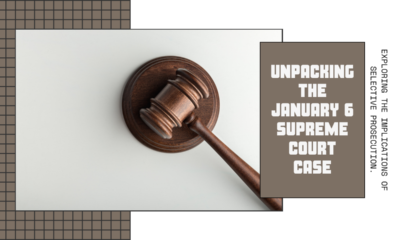
 Executive18 hours ago
Executive18 hours agoJanuary 6 case comes down to selective prosecution
-
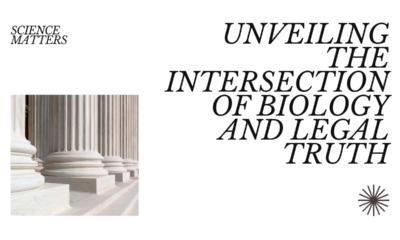
 Civilization23 hours ago
Civilization23 hours agoBiology, the Supreme Court, and truth
-

 Executive2 hours ago
Executive2 hours agoWhy Fatal Police Shootings Aren’t Declining: Some Uncomfortable Facts
-

 Entertainment Today3 hours ago
Entertainment Today3 hours agoWaste of the Day: Throwback Thursday: Millions Went To Video Game ‘Research’
-

 Constitution1 hour ago
Constitution1 hour agoEquality Under the Law and Conflicts of Interest in New York
-
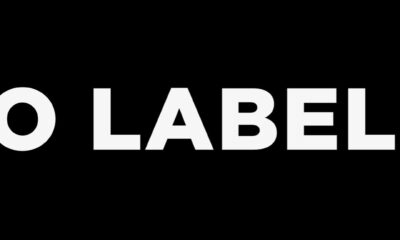
 Guest Columns58 mins ago
Guest Columns58 mins agoWhat Was Won in No Labels’ Crusade
-

 Civilization36 mins ago
Civilization36 mins agoPresident Biden Must Not Encourage Illegal Mass Migration From Haiti







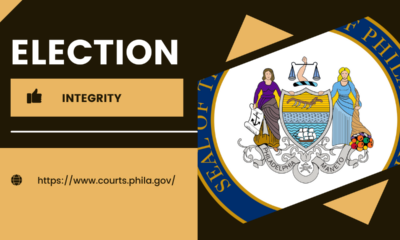

[…] decision against the Texas Heartbeat Act, unless Texas Right to Life, the only activists to talk of building any kind of program to enforce this law, act decisively, aggressively, and […]
[…] had laws to forbid or restrict abortion if Roe v. Wade falls. Texas is one of them – but CNAV has so far seen no evidence that a cadre of genuine pro-life activists is ready to enforce the Heartbeat Act. What we have […]
[…] of Texas) found that 49.8 percent fewer abortions took place in September 2021. In that month the Texas Heartbeat Act took force and effect. The U.S. Supreme Court turned back several challenges, saying in effect, […]